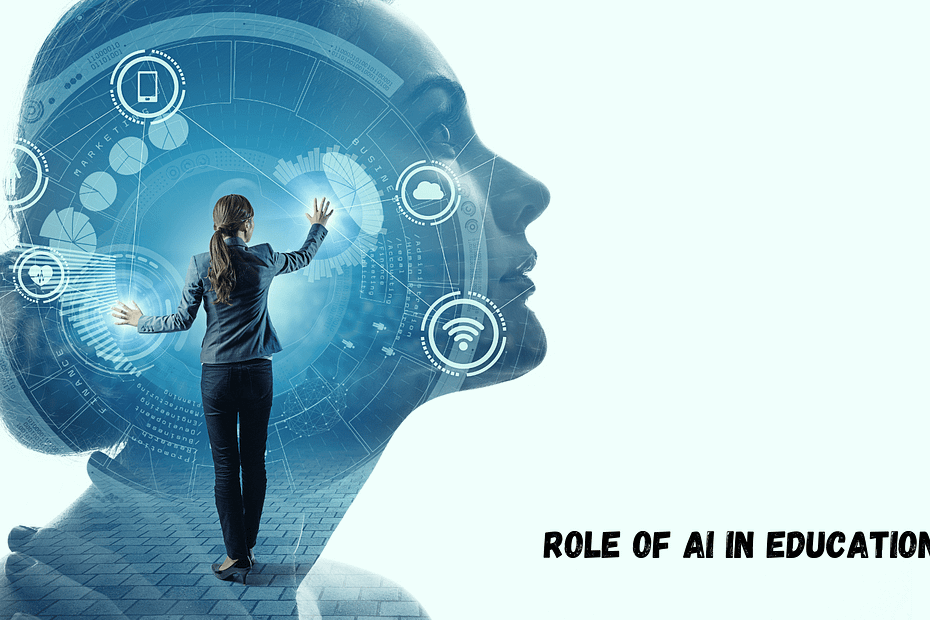Last Updated on: 9th September 2023, 09:08 am
In today’s digital age, AI (Artificial Intelligence) has woven itself seamlessly into various aspects of our daily lives, and the realm of education is no exception.
AI’s profound impact on education has the potential to reshape the way we approach learning and teaching, from enhancing student engagement and tailoring teaching styles to facilitating a deeper understanding of course materials.
Table of Contents:
- Understanding AI
- 4 Ways AI Enhances Student Learning
- Personalized Learning
- Tutoring
- Assessments and Grading
- Improved Student Engagement
- 3 Ways AI Benefits Educators
- Predictive Analysis
- Enhanced Teaching Methods
- Streamlined Assessments and Grading
- The Future of AI in Education
Understanding AI:
Before embarking on our exploration of AI’s contributions to education, let’s define what AI entails. AI, often referred to as machine intelligence, involves the emulation of human cognitive processes by computers. It encompasses a wide range of applications, from voice recognition systems like SIRI to complex problem-solving algorithms.
4 Ways AI Enhances Student Learning
1. Personalized Learning:
AI’s capacity to tailor education to individual learning styles stands out as one of its most remarkable contributions. AI technology can seamlessly adapt to diverse learning styles, creating a customized learning experience for each student.
AI can analyze a student’s historical performance data and construct tailored lesson plans and adjustments based on past achievements.
This personalization extends to guiding students toward relevant resources and information, eliminating the need for intervention from learning specialists.
Ultimately, AI aims to simplify the learning process, making it more accessible and effective for all, even in overcrowded classrooms.
2. Tutoring:
AI offers students on-demand tutoring without the necessity for in-person or live Zoom sessions. Using advanced algorithms, AI can swiftly pivot to cover the specific areas where students require additional support.
AI-based tutoring systems possess a high degree of sophistication in adapting to individual learning styles, thus enhancing the overall education of students.
AI-powered tutoring can effectively explain complex terms and concepts on a mass scale. By democratizing access to tutoring, AI ensures that all students can benefit, regardless of their financial means, while allowing educators to focus on progressing the curriculum.
3. Assessments and Grading:
A significant portion of a teacher’s time is consumed by grading assignments. AI technology offers a solution by expediting this process.
AI can analyze assignments and provide students with feedback on grammar, content, and vocabulary. By shouldering this grading burden, AI allows educators to dedicate more attention to essential aspects of teaching, such as lesson planning and student engagement.
Automating assessments and grading eliminates human errors, biases, and mistakes, ensuring fair and accurate evaluations for every student.
4. Improved Student Engagement:
AI plays a pivotal role in maintaining student engagement with educational materials. Educators can seamlessly integrate AI into their classrooms through the use of Chat Bots.
These Chat Bots are adept at personalization and adaptation to individual learning styles, providing ample opportunities to sustain student engagement.
Their accessibility anytime and anywhere allows students to work at their own pace and extend their learning beyond traditional class hours.
This enhanced engagement is a boon for course creators, enabling them to offer personalized, interactive learning experiences across various subjects, ultimately impacting lives positively.
3 Ways AI Benefits Educators
1. Predictive Analysis:
AI introduces predictive analytics to the field of education, offering educators valuable insights into students’ learning journeys.
By analyzing data, AI can predict which students may struggle, allowing for early intervention and the provision of necessary tools for success.
This early support ensures that students who might otherwise have faced failure or hardship can access the resources they need to excel.
Predictive analysis empowers educators to make data-driven decisions and tailor their teaching strategies accordingly.
2. Enhanced Teaching Methods:
Educators often grapple with time constraints when striving to introduce innovative teaching methods.
AI simplifies this process by enabling the rapid creation of educational games, simulations, and interactive content.
These resources not only make learning enjoyable but also reinforce the curriculum. By minimizing the time spent on material development, AI empowers educators to allocate more time to delivering high-quality lessons, ultimately creating a dynamic and effective classroom environment.
3. Streamlined Assessments and Grading:
Teachers frequently cite assessments and grading as the most time-consuming aspects of their profession. AI offers a remedy by automating these processes. It enables real-time assessments and provides immediate feedback to students, reducing educators’ workloads.
AI can offer detailed feedback, helping students comprehend their mistakes and areas for improvement. This feedback is crucial for the learning process and ensures better student performance.
Real-time assessments enhance students’ understanding of the material at the moment, rather than after the fact.
The Future of AI in Education:
Although AI’s role in education is still in its early stages, its potential to reshape the future of learning is immense.
Like any emerging technology, it comes with challenges, such as the potential for biases in algorithms. Another challenge lies in providing ongoing training for educators on how to effectively incorporate AI into their teaching methodologies.
Given the rapid pace of technological change, educators must embrace continuous learning and adaptability to fully harness the transformative potential of AI in education.



